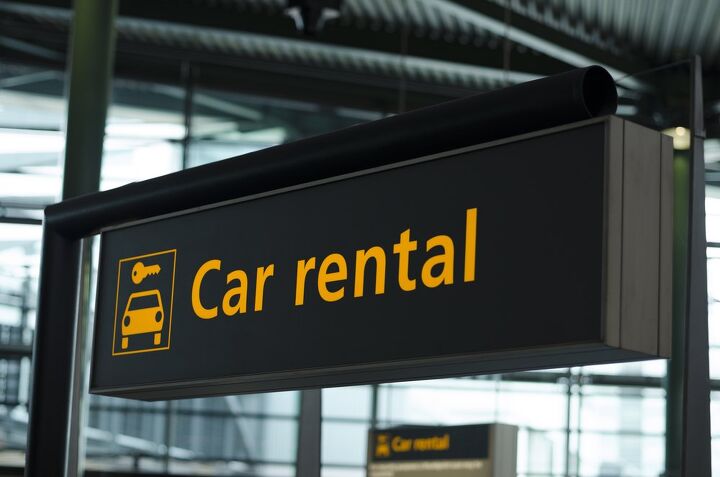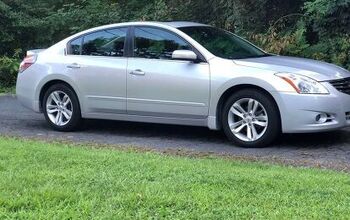Hertz Cancels New Car Orders for 2020

With Hertz concerned with avoiding bankruptcy as the coronavirus pandemic eliminates vacation plans en masse, the company has decided to cancel 90 percent of the new cars it would have purchased this year to refresh its fleet. Minimizing costs for 2020 will be essential for all rental agencies until demand for their services picks up. It’s also indicative of an industry that doesn’t believe life is going to snap back to normal by the end of the month.
We’ve previously covered how badly the economic ramifications of COVID-19 lockdowns have treated car rental groups, but haven’t said much about how they scoop up a large number of vehicles from manufacturers every year — helping to pad their annual volumes. Hertz held roughly 567,600 vehicles in its U.S. fleet and 204,000 in its international unit in 2019. Under normal circumstances, those cars would be rotated out in favor new models after spending a little over a year servicing customers. But Hertz will only need 10 percent of that number this annum, with the distinct possibility of other rental agencies taking similar action.
That doesn’t bode well for manufacturers hoping for a swift rebound once social distancing mandates ease (or are simply ignored by citizens tired of waiting). However, it sounds a necessary response to ensure Hertz actually makes it to 2021, which is anything but a certainty at this point. According to Automotive News, the business’ concerns were front and center in its latest financial discussions:
Chief Executive Officer Kathy Marinello revealed the cost-cutting move in a 20-minute conference call Tuesday, one day after the company reported a larger-than-expected first-quarter net loss and said it may have difficulty continuing as a going concern. That signaled the company’s management doesn’t expecting a quick rebound in demand for rental cars over the next 12 months.
“The coronavirus created a major disruption as the global travel market and the used-car market effectively shut down,” Marinello said. “We have to be pragmatic about the timing of an economic rebound including a second wave of the virus in the fall. So we are focused on safeguarding liquidity.”
Hertz’s inability to replenish an aging fleet that won’t see much use anyway will disproportionally impact Detroit automakers, as they’re the models most prevalent in its existing lineup. Hyundai, Kia, Toyota, and Nissan will also take a hit. The rental firm currently faces a May 22nd deadline to settle up with lenders. While they’ve already extended some leniency by pushing back the date, Hertz will still have to renegotiate payment terms to avoid financial ruin. Unfortunately, it hasn’t issued an update on the matter (and probably won’t until there’s agreement in place or the deadline arrives).
[Image: IJzendoorn/Shutterstock]

A staunch consumer advocate tracking industry trends and regulation. Before joining TTAC, Matt spent a decade working for marketing and research firms based in NYC. Clients included several of the world’s largest automakers, global tire brands, and aftermarket part suppliers. Dissatisfied with the corporate world and resentful of having to wear suits everyday, he pivoted to writing about cars. Since then, that man has become an ardent supporter of the right-to-repair movement, been interviewed on the auto industry by national radio broadcasts, driven more rental cars than anyone ever should, participated in amateur rallying events, and received the requisite minimum training as sanctioned by the SCCA. Handy with a wrench, Matt grew up surrounded by Detroit auto workers and managed to get a pizza delivery job before he was legally eligible. He later found himself driving box trucks through Manhattan, guaranteeing future sympathy for actual truckers. He continues to conduct research pertaining to the automotive sector as an independent contractor and has since moved back to his native Michigan, closer to where the cars are born. A contrarian, Matt claims to prefer understeer — stating that front and all-wheel drive vehicles cater best to his driving style.
More by Matt Posky
Latest Car Reviews
Read moreLatest Product Reviews
Read moreRecent Comments
- Ltcmgm78 Just what we need to do: add more EVs that require a charging station! We own a Volt. We charge at home. We bought the Volt off-lease. We're retired and can do all our daily errands without burning any gasoline. For us this works, but we no longer have a work commute.
- Michael S6 Given the choice between the Hornet R/T and the Alfa, I'd pick an Uber.
- Michael S6 Nissan seems to be doing well at the low end of the market with their small cars and cuv. Competitiveness evaporates as you move up to larger size cars and suvs.
- Cprescott As long as they infest their products with CVT's, there is no reason to buy their products. Nissan's execution of CVT's is lackluster on a good day - not dependable and bad in experience of use. The brand has become like Mitsubishi - will sell to anyone with a pulse to get financed.
- Lorenzo I'd like to believe, I want to believe, having had good FoMoCo vehicles - my aunt's old 1956 Fairlane, 1963 Falcon, 1968 Montego - but if Jim Farley is saying it, I can't believe it. It's been said that he goes with whatever the last person he talked to suggested. That's not the kind of guy you want running a $180 billion dollar company.


































Comments
Join the conversation
Bought a 2013 Altima from Hertz in 2014 with 63k miles on it. Compared to everything else I looked at in that price range, it was like a new car. Easiest buying experience I ever had and the car's been the most reliable I've owned in 50 years of driving. This was my second ex-rental and I wouldn't hesitate to buy another.
Hmmm, no one is complaining about their Challenger or Mustang GT rental.